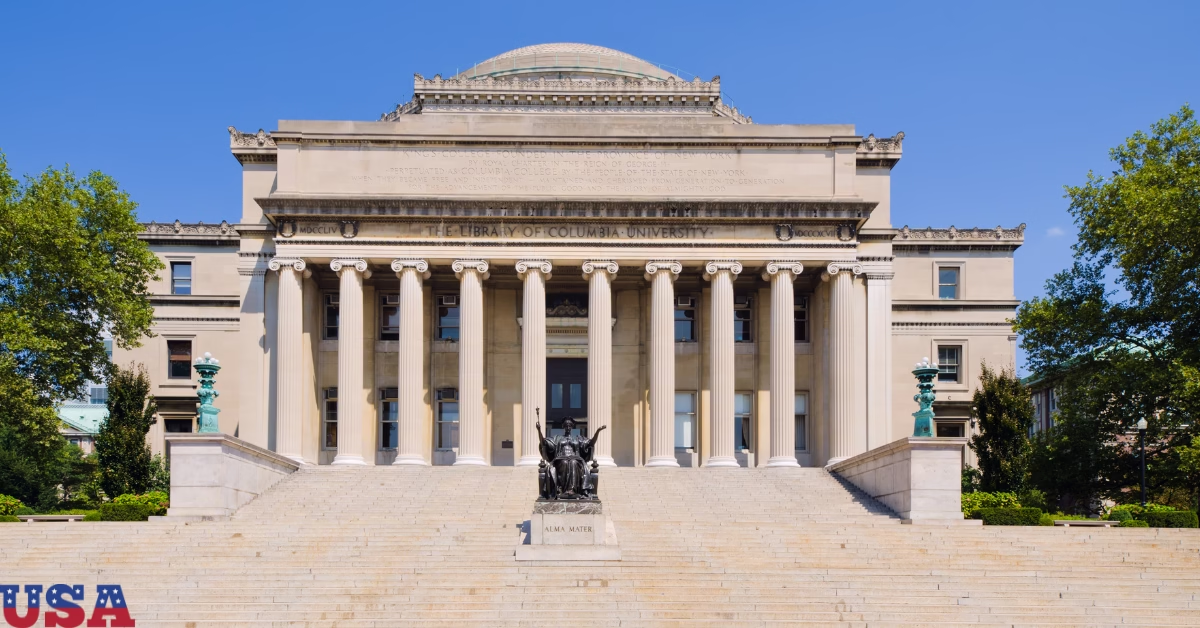Columbia University settlement marks a pivotal moment in higher education funding and policy. When Columbia agreed to pay $220 million to resolve federal investigations, it not only regained access to nearly $400 million in research grants—but also set a new standard for campus compliance and academic oversight.
1. A Historic Settlement: Columbia University Settlement : Pays $220M to End the Funding Freeze
- $200 million payment over three years to resolve civil‑rights claims from the Trump administration. AP News+9AP News+9Reuters+9
- An additional $21 million settles Equal Employment Opportunity Commission (EEOC) investigations involving alleged discrimination against Jewish staff. Reddit+15The Guardian+15The Washington Post+15
- Total financial package exceeds $220 million. AP News+13The Guardian+13https://www.wsaz.com+13
PLEASE READ : Your Easy Guide to Student Loan Debt in the US: Repayment, Forgiveness & Smart Strategies
2. Freezing $400M in Research: The Catalyst
- In March 2025, federal agencies—including DOJ, ED, HHS, and GSA—suspended about $400 million in federal grants due to Columbia’s alleged failure to curb antisemitic harassment during pro‑Palestinian protests.Reddit+2Reuters+2Reddit+2
- The threat extended to potential cuts in over $5 billion of future funding and contracts. Reddit+1Reddit+1
3. Terms of the Deal: Reforms & Restorations
Columbia University Settlement
To regain funding, Columbia agreed to:
- Adopt the IHRA definition of antisemitism, covering exclusion, discrimination, double‑standards for Israel, and more. ElHuffPost+15Reddit+15https://www.hawaiinewsnow.com+15
- Overhaul student discipline protocols, including banning masked protests (with exceptions), expanding enforcement powers, and adding transparency. The Guardian+15AP News+15WRAL.com+15
- Restructure Middle Eastern, South Asian & African Studies, placing it under a senior vice provost for oversight of curriculum and faculty. https://www.hawaiinewsnow.com+8Reddit+8Reddit+8
- Review DEI programs to remove race‑based policies or targets and ensure compliance with federal law.https://www.fox10tv.com+3AP News+3https://www.hawaiinewsnow.com+3
- Reform admissions for international students, including screening for intent to foster civil discourse.https://www.hawaiinewsnow.com+8WSLS+8opb+8
- Quarterly reports to an independent monitor, Bart M. Schwartz—a former U.S. prosecutor—who will assess compliance. https://www.wsaz.com+3Wall Street Journal+3WSLS+3
4. Funding Returns: $400M — Nearly All Restored
- As part of the settlement, the nearly $400 million in frozen research grants—including NIH, NSF, DOE, and GSA funding—will be reinstated. Reddit+11Reuters+11Wall Street Journal+11
- This renewal is crucial: These funds support hundreds of researchers, medical students, and groundbreaking projects in health and science. The Guardian+15Reddit+15Reddit+15
5. Autonomy vs. Accountability: Balancing Rights
- Preserving autonomy: Acting president Claire Shipman emphasized that the agreement “safeguards our independence … [restoring] our essential research partnership” without sacrificing academic freedom.Reddit+15WRAL.com+15The Washington Post+15
- Limits acknowledged: While not agreeing to a federal consent decree, Columbia accepts oversight via an external monitor and curriculum safeguards. Reddit+15Wall Street Journal+15ElHuffPost+15
6. Campus Response: Praise, Critique & Concern
- Supporters assert the deal is a necessary “lifeline,” restoring vital funds and signaling the importance of protecting Jewish students.
- Critics, including faculty groups and unions (AAUP, AFT), warn that this sets a dangerous precedent for government interference in campus speech and free inquiry. opb+15Reddit+15NY1+15
- On the ground, repercussions were profound: lab closures, 180+ layoffs at Columbia, research disruptions, and national discourse on free speech. Wall Street Journal
7. Wider Fallout: A Template for Other Universities
- Columbia’s settlement is seen as a template—or warning—for institutions like Harvard, Brown, and Berkeley, which face similar federal pressure and fund threats. The Guardian
- Some universities have chosen litigation over compliance. Harvard is currently challenging a $2.2 billion cut through federal courts. Wall Street Journal
8. Looking Forward: What’s at Stake
| Challenge | How Columbia Addressed It |
|---|---|
| Federal influence on academia | Deal shows federal funding is a potent tool—but not consent decree control. |
| Academic freedom | Retained, though under more oversight and policy guidelines. |
| Campus culture | Greater protections for Jewish students, anti‑masking enforcement, and curriculum balance. |
| Precedent | Likely model for “federal‑funding leverage” tactics in higher ed nationwide. |
🔍 Final Takeaway: Columbia University Settlement as a Turning Point
Columbia University Settlement: Columbia’s $220 million settlement is more than a financial transaction—it’s a reshaping of how universities, protests, federal policy, and anti‑discrimination laws interact:
- Federal leverage has real teeth—but autonomy hasn’t been fully eroded.
- Antisemitism protections are now under federal-aligned definitions and monitoring.
- University autonomy survives, but with stricter accountability.
- Campus policies (from discipline to DEI) must now align tightly with federal mandates.
- Universities nationwide are bracing: Will they comply or challenge next time?
Columbia’s story illustrates a pivotal crossroads in U.S. higher education: when funding and federal mandates collide, institutions face hard choices. This agreement sets a precedent—and provokes a broader question: Can robust campuses thrive under this new era of oversight without losing their soul?


2 thoughts on “Columbia University Settlement: $220M Accord That Redefines Campus Oversight”
Comments are closed.